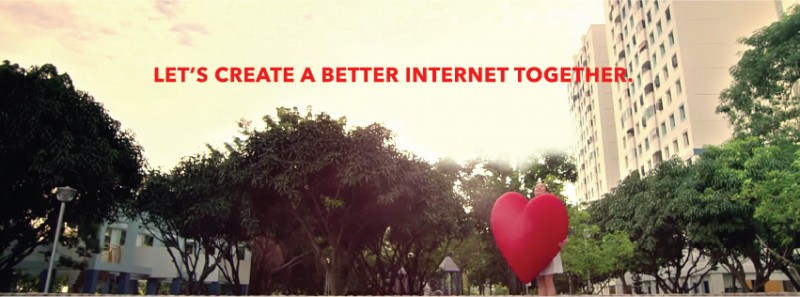
Last month, the Media Literacy Council (MLC) launched a campaign to spur pro-social online behaviour. The campaign, timed to mark the Safer Internet Day, celebrates individuals and groups that exhibit responsibility and empathy in their online interactions and those who use the Internet to encourage others or promote social causes.
The Internet as a rational space has become an ideal that is much sought after. This is understandable, as what goes on online often has offline repercussions.
In 2013, Defence Minister Ng Eng Hen coined the term DRUMS (distortions, rumours, untruths, misinformation and smears) to describe how inaccurate information on the Internet could cause undue panic and divide communities, threatening Singapore’s multiracial and multicultural society. The most recent example is the implication of a Filipino family in the altercation at a Thaipusam celebration.
However, negative or antisocial speech can also be unintentional when people make casual utterances and engage in what they feel is harmless venting of frustration at specific groups of people or policies. Some post comments in the heat of the moment, while others feel they are merely expressing their personal opinions.
While “irrational” speech is sometimes unpalatable, it is a useful signpost of how different segments of society feel about issues affecting them.
Regardless of the intent or lack thereof, irrational speech, especially sensational and provocative comments, tends to “stick”. When these messages are replicated and transmitted to many others online, they create the illusion that many share similar views, when the opinions are held by only a minority.
So how do we cultivate rationality online and improve the tenor of online discussions in Singapore? Such contemplation is futile without questioning what we understand by rationality.
What constitutes rationality has been contested for centuries past. The Greek philosopher Aristotle described man as a rational animal who possesses the ability to reason, reflect and think. He believed that ethically desirable behaviour could become our second nature through practice. On the other hand, Scottish historian and philosopher David Hume argued that reason was inadequate to motivate behaviour and that passions drove human action.
In Asian philosophy, Confucian philosopher Xunzi viewed man as innately evil and believed he would use reason to guide his actions in advancing his own interests, while Mengzi believed that man was predisposed to being moral and good and that this innate quality could be further developed.
The recent controversy surrounding the satirical French magazine Charlie Hebdo and its infamous cartoons has generated impassioned debates on wide-ranging issues such as free speech and censorship, media freedom and responsibility as well as the rights of the minority and of the majority. The aftermath, which is still unfolding in different parts of the world, undoubtedly shows that different groups hold different views on what is rational.
The search for the elusive rationality is further complicated by the diversity in humankind across cultures, societies and politics. The contesting philosophies and human diversity shed light on the wide range of online behaviour.
Thus, perhaps the focus should not be on the type of rationality we should strive for, but on how to find common ground where different reasons, passions and ends can be accommodated.
The findings of a recent Institute of Policy Studies study on the rationality of the online political space are encouraging. Based on a snapshot of blogs with political content in June and July last year, the study analysed the blogs’ content for their rationality, based on objectivity and emotionality.
Most blogs presented ideas in a calm way, though there were several that ranted and raved or used expletives when they discussed hot-button issues. A large majority also presented the alternative side — sometimes multiple sides — to the issues, albeit to different extents.
The government, the private sector and the public at large all have vital roles to play in creating a space that befits the social and cultural landscape we inhabit. It will be a space within which people accommodate one another, agree to disagree and thrive.
Through official discourse and legislative mechanisms such as the Penal Code, Sedition Act and the Protection from Harassment Act, the Government has implicitly and explicitly set the norms for acceptable and unacceptable discourse and behaviour. Besides providing legal recourse for victims, the law sets standards for acceptable and unacceptable behaviour.
Private institutions and non-governmental organisations, through their organisational ethos, transmit values that shape corporate practices and how their stakeholders behave online. Educational institutions and commercial entities, by decrying uncivil or disrespectful speech from students and staff, send a message to not only their internal audiences, but also the larger public on what constitutes punishable offences.
By standing up against racist and xenophobic speech, cyber-lynching and online vigilantism, citizens defend on behalf of different communities the sanctified principles on which the Singapore society is built. These ground-up efforts demonstrate people’s conviction to take action against perpetrators of offensive speech and mistruths.
Cross-sector initiatives involving the community, industry and the government, such as the MLC, promote collective efforts across different segments of society to build a vibrant yet safe online space.
A rational cyberspace for Singapore would eventually be a common space that evolves through speech and counter speech, through pushing and redefining boundaries. We all have a role to play in building the rational space that we want for our society, offline and online.
Dr Carol Soon is a Research Fellow with the Arts, Culture and Media cluster at IPS. She is a member of the Media Literacy Council. This piece was first published in the TODAY newspaper on 12 March 2015.
Top photo from here
